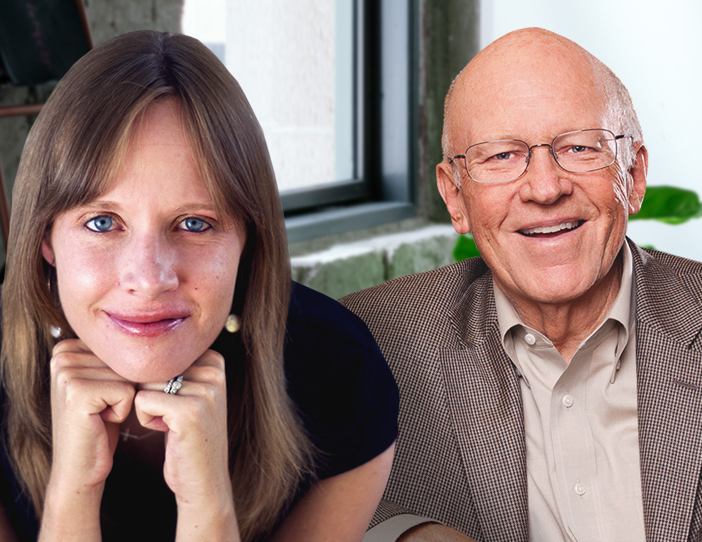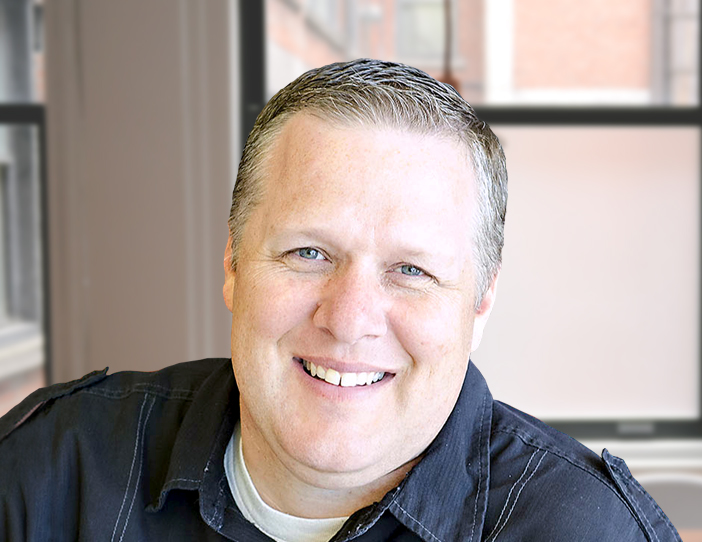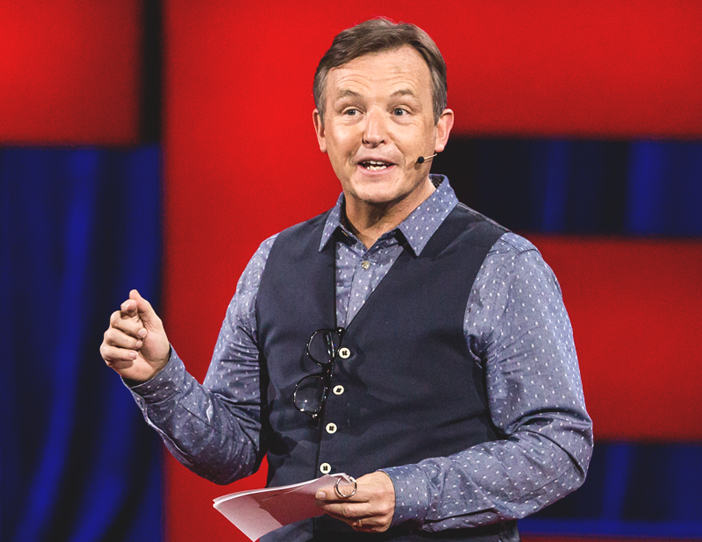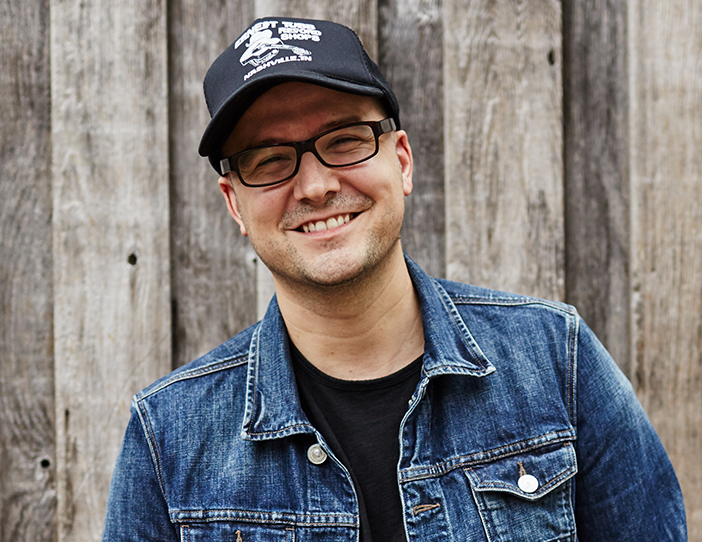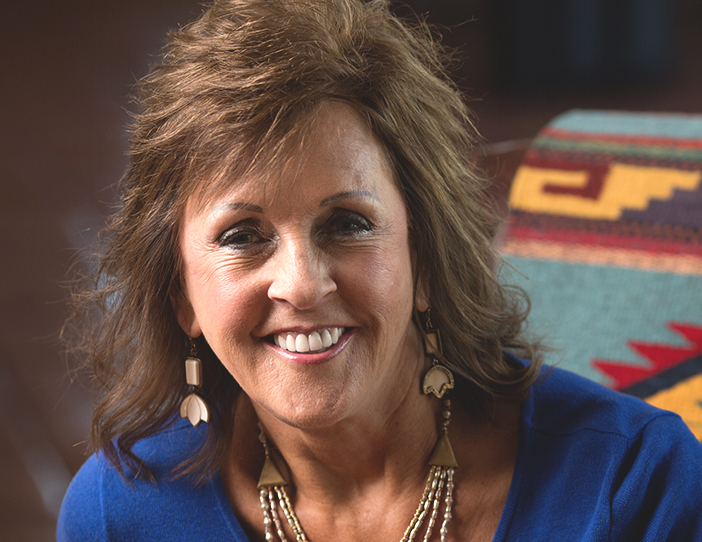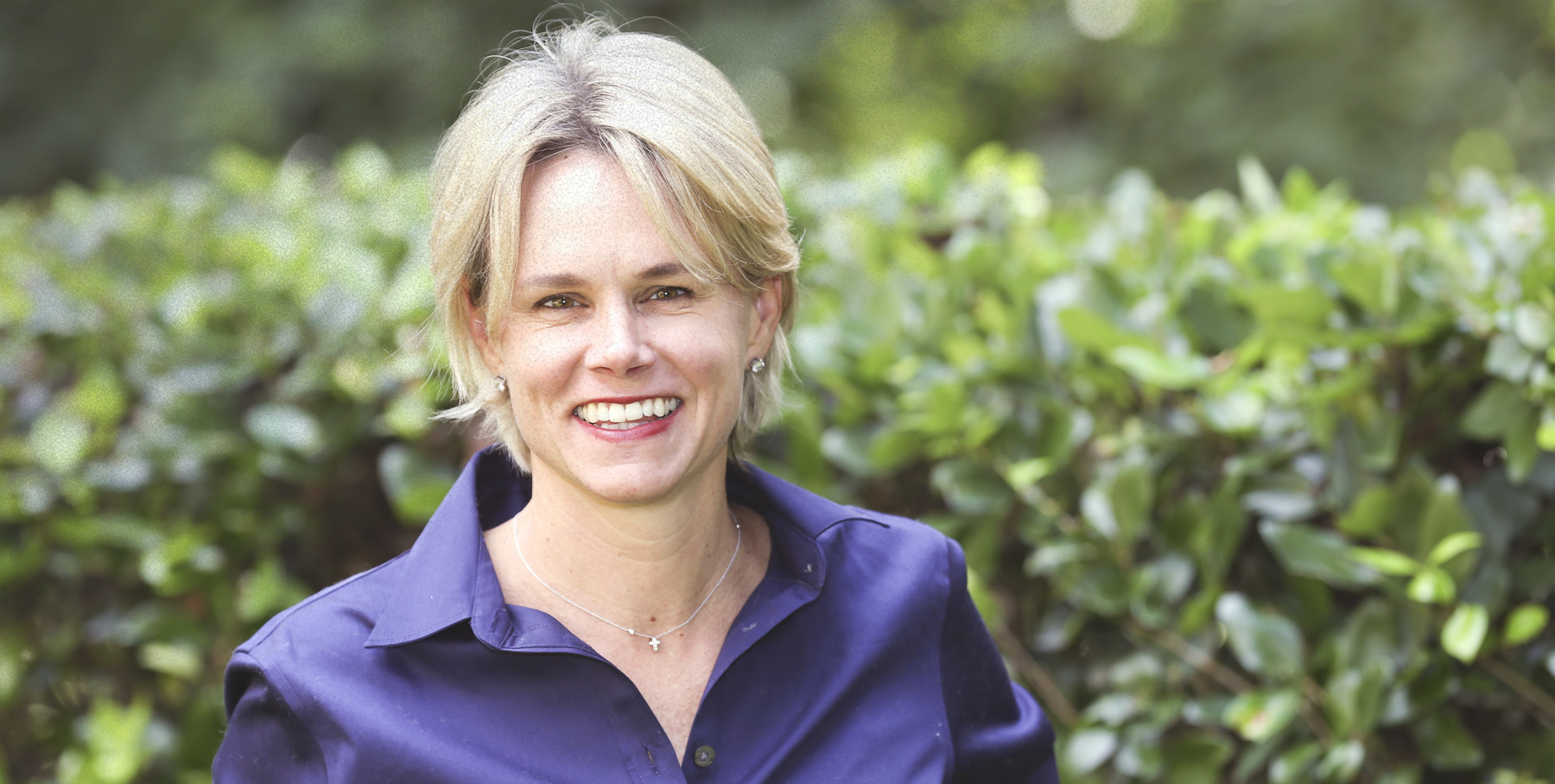
Episode Description
According to a recent Gallup poll about the state of the American workplace, 70% of U.S. workers are not engaged at work.
Are you one of those 2 out of 3? Perhaps you’ve thought about making a change, but you haven’t. You can list a variety of reasons, but at the base of them all is just one factor: fear.
If you’re trudging to work but are afraid to do anything about it, I have some great news. In this episode of the Building a StoryBrand podcast, I interview Molly Fletcher, author of Fearless At Work. She’s going to show us how to move past our fears so we can become the best version of ourselves.
As a former sports agent for 20 years, Molly discovered that the best-of-the-best athletes have one thing in common: a fearless mindset. She learned how to navigate fear firsthand from the athletes she represented and practiced her knowledge at the negotiating table securing contracts.
Eventually, she used her fearless mindset to leave a highly successful career and became an entrepreneur, consultant, corporate speaker and author. Now, she’s sharing these lessons with StoryBrand listeners so you can face that upcoming deadline, rock that presentation, share that new idea or make that leap out of the job you hate.
Why waste your life’s hours slaving away at something you don’t like? Listen to this episode and incorporate these fundamental habits at work so you can achieve your maximum potential. You never know, you might make the leap into the life you’ve always dreamed of.
#1: Motivate Yourself by Finding a Clear Purpose
“When we have a purpose behind something that we’re going to do in our lives, we’ll do it,” says Molly.
I’ve made a lot of health and fitness goals in my life, most of which I’ve never met. But one time, I sat down and did more than just set a goal. I incorporated meaning into it. I spelled out why I wanted to lose weight. I determined my purpose in losing weight.
It worked.
If you haven’t found the purpose for your work, you’re probably not going to achieve much. Competing interests for your time and money will suck away your motivation. But if you know why you’re doing this work, you can make clear decisions and back them with action.
“When you can align your purpose with your work, you can do pretty amazing things,” Molly says.
Finding your purpose will take some time and effort. It’s a big deal. Molly suggests imagining your funeral and asking, “What legacy do I want to leave? What’s most important to me when I look back?”
If you find the important reasons for your work, you’ll find the courage to do amazing things.
#2: Get Curious When the Stakes are Raised
Most of the athletes Molly dealt with already believed they could execute their skills on the playing field. They were the best in their level. Then, they got dropped into a fishbowl at the national level with a bunch of other elites that were just as good — or even better. For some of these players, it may have been the first time they weren’t the “big duck in the small pond.”
When you move up a tier, scale up your business, or expand into a new market, the tool you’ll need to handle this next horizon is curiosity.
Molly points out that the competitors who were continually curious about learning how to improve and expand their skills usually rose to the top. When you move up a tier, scale up your business, or expand into a new market, the tool you’ll need to handle this next horizon is curiosity. Instead of feeling intimidated by your lack of experience, start asking questions and seeking advice. The people around you can help you tackle the next step.
Bring humility to your next transition and seek feedback. Your fears will be squelched by the joy of learning. And when the competition gets stiffer, you’ll have positioned yourself to compete with the best.
#3: Tell Yourself the Right Story
When you’re fearless, you’re going to fail. Don’t worry about avoiding it, Molly says. Instead, you should create a strong tolerance for it.
How do you build an immunity to failure?
“By telling yourself the right things,” Molly says.
If a golfer bogeys a hole, she doesn’t step onto the next hole and say, “Jeez man, I hope I don’t bogey this one.” The fearless golfer steps onto the next hole and says to herself, “You’ve got this. I’m going to birdie this and I’m going to get back in the lead.”
If a baseball player walks a guy, he doesn’t step back onto the mound and go, “If I walk two guys, I’m going to get pulled.” He says, “I’m going to sit the next guy down.”
“The mindset of the best athletes I saw told themselves they were going to win,” Molly says. “They told themselves they were going to have success.”
If you lose a deal or a piece of business, you can’t tell yourself, “Oh my gosh, maybe this whole thing’s unraveling. Maybe I really can’t …”
She translates that to the workplace. In Molly’s words: If you lose a deal or a piece of business, you can’t tell yourself, “Oh my gosh, maybe this whole thing’s unraveling. Maybe I really can’t …” You’ve got to tell yourself, “I can. I belong here and I’ll execute.”
The story in your head is important. Rather than letting your fears run away with the plot, tell yourself you’ll win… eventually.
#4: Stay In The Present
I once had the opportunity to interview pro golfer Ben Crane. I remembered when he faced a really important putt and I asked him what he was thinking just before he dropped it in the hole.
He said, “Don, I was thinking nothing. That’s the goal. That’s when I knew I could sink the putt. Nothing was in my head.”
Fearlessness is living in the moment. But to get into a zone like that takes practice, Molly points out. Have you ever walked in the door and kissed your spouse with your mind still grinding away on unresolved office work? Or at work, have you clicked on Facebook or did a little Amazon shopping when you should be knocking out a project? Those are times when you can practice focusing on who or what is in front of you. Staying present in the small moments prepares us for the big moments.
When you see an athlete make a great decision in a moment with two seconds left, you might wonder, “How did he do that? Where did that come from?” It came from staying focused during hours and hours of practice — when the stakes weren’t high.
Firefighters, police officers and soldiers practice frequently so they can perform their duty when the battle arrives. Are they afraid? Sure. But the training overcomes it.
If you practice living in the present both at work and at home, you’ll build competency for the big moments. Your training will conquer your fear.
#5: Own Your Mistakes
Sometimes we think being fearless has to do with the outside world. We must be the warrior that conquers the dragon. But as that wise sage, Dr. Seuss, points out:
When you’re alone, there’s a very good chance you’ll meet things that scare you right out of your pants.
Your greatest enemy might be the person looking back at you in the mirror.
If you’re going to move forward into the work you love, you should be ready and willing to admit your mistakes. Molly says taking ownership of your faults means you can say, “Okay, this seems to be a trend here. I keep making the same mistake. I need to sit and process why I’m doing this.”
Answering for your blunders requires more than a quick apology, she points out. It takes intense self-reflection and self-awareness.
Molly’s words: “We’ve got to be accountable from the inside out.”
Once you’ve learned why you keep landing in the same ol’ muddle, come up with a plan of action that will prevent it from reoccurring. This takes humility. But you won’t regret it.
You may be your worst enemy, but if you own your mistakes, you’ll be ready to face anything the world decides to throw at you.
#6: Be Bold
How can you be bold at work?
Molly gives an analogy from her experience playing tennis at Michigan State. Her coach had her imagine sharks patrolling the baseline and they would eat her up if she stepped behind it. After positioning her on the baseline, he said, “Make sure you’re stepping into every ball and taking it on the rise. Take it early.”
The analogy stuck.
Molly applied that metaphor to her life when she moved to Atlanta to find a job in sports. It informed her when she left a comfortable salary as a sports agent to become an entrepreneur and author.
“I think that’s what being bold is,” she says. “It’s stepping in and going for what you want instead of waiting for it to come to you.”
If you’re not engaged at work, perhaps it’s because you’re hanging back behind the baseline.
Creating the work you love will take some boldness. Step up and take the ball on the rise.
—
Hopefully, after incorporating these habits at work, you’ll no longer be a part of that disengaged 70% of the workforce.
You’ll discover your true purpose, become curious when the stakes are raised, and tell yourself stories that help you recover after you fail. You’ll also remember to stay present in the small moments and own your mistakes. Finally, you’ll be bold in decisions and step into the things you want. You’ll go for it.
Who knows? Perhaps by next year, you’ll either see your job in a whole new light or overcome your fears and start something completely new.

Are you ready to take your business to the next level?
Someone with a fearless mindset would say yes! Be bold and come to one of our Live Workshops this summer. We’ve got sessions in both Portland, OR and Nashville, TN. If it’s time to move up, it’s time to get curious and start asking questions about how to get better at communicating with your customers.
Executive producer: Tim Schurrer
Additional production and editing: Chad Snavely

